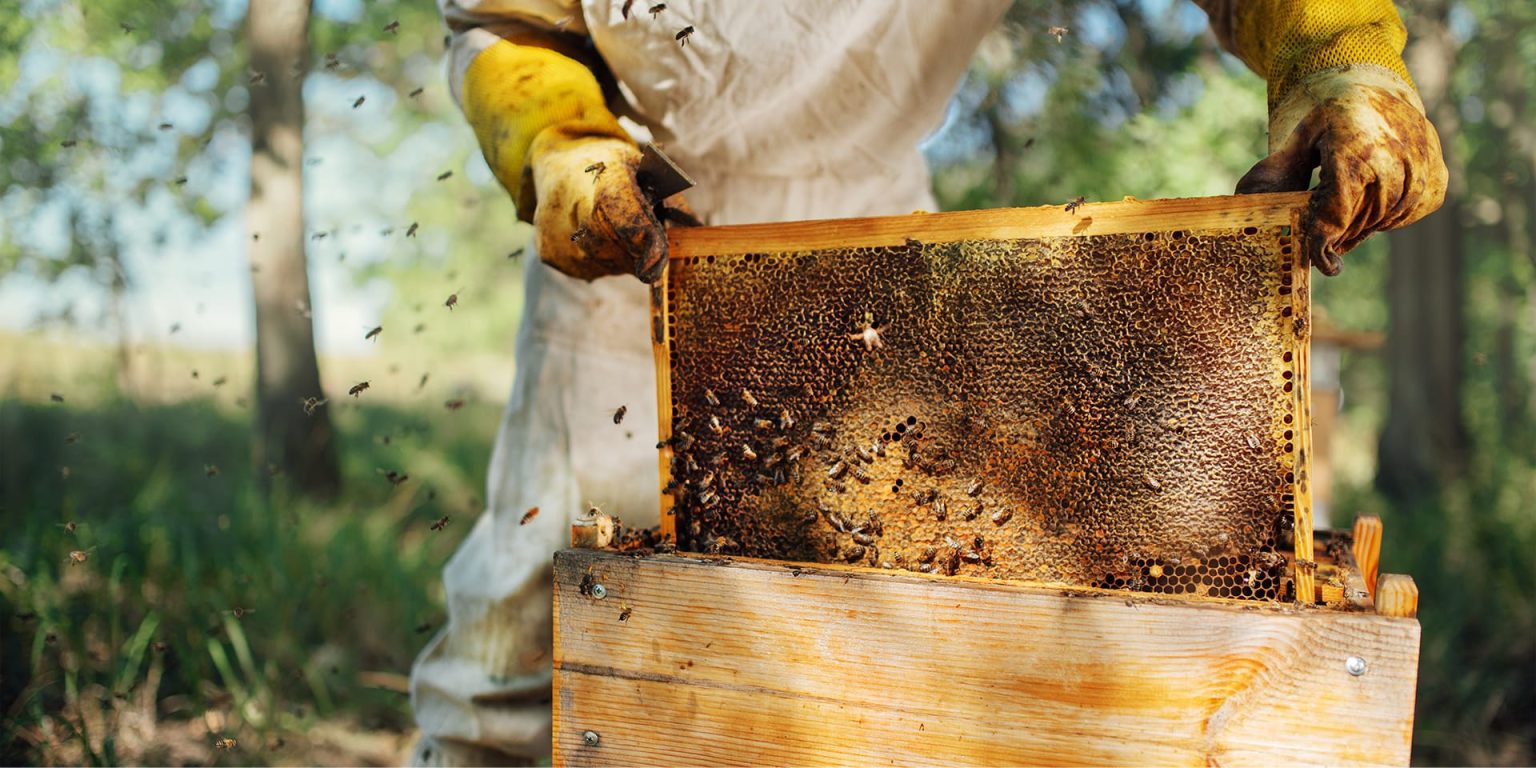Embarking on the journey of beekeeping can be a rewarding and an educational experience, but for beginners, the prospect may seem daunting. Fear not! This comprehensive guide is designed to demystify the basics of beekeeping, providing aspiring apiarists with the foundational knowledge needed to establish and maintain a thriving hive.
What should you know about bees?
On the average, one honeybee colony will have 30,000-50,000 bees, depending on the size. Within that community lives the queen, who lays upwards of 1,500 eggs daily, worker bees who run the hive, and drones, which are the male bees who mate with queens from other colonies (Donovan, 2019). In the publication on “Beekeeping for Beginners”, Donovan (2019) stated that bee biology is crucial for all beginners, which is why first-timers are to take a beekeeping class from an experienced, respected individual or organisation.
You’ll learn the basics, including proper terminology, equipment use, and how to manage bees from season to season. From selecting the right equipment to understanding the rhythms of the hive, let’s delve into the essentials of beekeeping for beginners
Choosing your hive: A home for your bees
Explore the different types of beehives available, from Langstroth to top-bar hives, and guide beginners in selecting the most suitable option for their needs. Discuss considerations such as hive design, size, and material.
Essential beekeeping equipment: Tools of the trade
Introduce beginners to the necessary equipment, including bee suits, smokers, hive tools, and more. Explain the purpose of each tool and offer guidance on where to obtain quality equipment.
Understanding honeybee anatomy: Know your bees
Provide a basic overview of honeybee anatomy, emphasizing the roles of the queen, worker bees, and drones. Understanding the different castes is crucial for effective hive management.
Starting your hive: Acquiring bees and installing them
Guide beginners through the process of acquiring bees, whether through purchasing packages, nucs, or catching swarms. Walk them through the steps of installing bees into their new hive, emphasising gentle and careful handling.
Beekeeping safety: Protecting yourself and your bees
Stress the importance of safety measures for both beekeepers and bees. Discuss the use of protective gear, proper handling techniques, and potential allergens or hazards.
Hive inspection basics: Monitoring your colony
Break down the fundamentals of hive inspections, including frequency, signs of a healthy hive, and identifying potential issues. Emphasise the importance of record-keeping for tracking hive development.
Feeding and nutrition: Supporting your bees
Discuss the nutritional needs of honeybees and guide beginners on when and how to supplement their diet, especially during times of scarcity or inclement weather.
Managing pests and diseases: A preventative approach
Introduce common pests and diseases that affect honeybee colonies, along with strategies for prevention and early detection. Emphasise the role of integrated pest management in maintaining hive health.
Seasonal hive management: Adapting to nature’s rhythms
Explore the seasonal changes that impact beekeeping, from spring buildup to winter preparation. Provide insights into hive management practices for each season.
Conclusion
Armed with the knowledge of hive basics, beginners can confidently embark on their beekeeping journey. Remember, beekeeping is both an art and a science, and each hive is a unique living system. By honing these foundational skills, aspiring beekeepers can foster healthy colonies, contribute to pollination efforts, and enjoy the sweet rewards of their labor.


